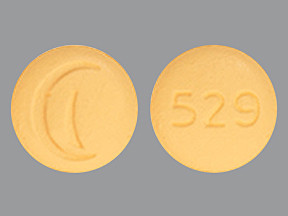DONEPEZIL - ORAL
PHONETIC PRONUNCIATION: (doh-NEP-eh-zil)
COMMON BRAND NAME(S): Aricept
GENERIC NAME(S): donepezil HCl
Uses
USES: Donepezil is used to treat confusion (dementia) related to Alzheimer's disease. It does not cure Alzheimer's disease, but it may improve memory, awareness, and the ability to function. This medication is an enzyme blocker that works by restoring the balance of natural substances (neurotransmitters) in the brain.
How to use DONEPEZIL - ORAL
HOW TO USE: Read the Patient Information Leaflet if available from your pharmacist before you start taking donepezil and each time you get a refill. If you have any questions, ask your doctor or pharmacist. Take this medication by mouth with or without food as directed by your doctor, usually once daily just before bedtime. If you experience sleep problems (insomnia), talk to your doctor about switching to a morning dose. If you are taking the 23-milligram strength tablets, swallow them whole. Do not split, crush, or chew these tablets. Doing so can increase the risk of side effects. Dosage is based on your medical condition and response to treatment. To reduce your risk of side effects (such as nausea and diarrhea), your doctor will start this medication at a low dose and gradually increase your dose over weeks to months. Follow your doctor's instructions carefully. Do not increase your dose or use this drug more often than prescribed. If you do not take donepezil for 7 or more days in row, talk with your doctor before starting again. You may need to start at a lower dose to decrease the risk of side effects. Use this medication regularly in order to get the most benefit from it. To help you remember, take it at the same time each day. Do not stop taking it unless your doctor instructs you to do so. It may take a several weeks before you get the full benefit of this drug. Tell your doctor if your condition worsens.
Side Effects
Precautions
Interactions
Overdose
Images
Reviews
Faq for DONEPEZIL - ORAL
Donepezil is an oral medication that is used to treat symptoms of Alzheimer's disease. It works by increasing the levels of a certain substance in the brain that is involved in memory, thinking, and reasoning.
Donepezil should be taken exactly as prescribed by your doctor. Usually, it is taken once a day in the evening before bedtime. You may take it with or without food, but try to take it at the same time each day.
Common side effects of Donepezil may include nausea, vomiting, diarrhea, loss of appetite, muscle cramps, fatigue, insomnia, and abnormal dreams. These side effects are usually mild and go away on their own. If they persist or become severe, it is recommended to speak with your doctor.
Donepezil may take several weeks to show its full effects, so it is important to continue taking the medication as prescribed even if you do not see immediate improvement. It is also important to note that Donepezil does not cure Alzheimer's disease, but it may help improve cognitive function and slow down the progression of symptoms in some patients.
It is generally not recommended to consume alcohol while taking Donepezil, as it may increase the risk of side effects such as dizziness and drowsiness. It is best to consult with your doctor about specific recommendations regarding alcohol consumption.
Donepezil may interact with certain medications, so it is important to inform your doctor about all the medications you are currently taking. This includes prescription drugs, over-the-counter medications, and herbal supplements. Your doctor can determine if any interactions may occur and make appropriate adjustments to your treatment plan if necessary.
Donepezil is typically prescribed for mild to moderate stages of Alzheimer's disease. It may be less effective in the later stages of the disease when cognitive function has significantly declined. Your doctor will assess your condition and determine if Donepezil is the appropriate treatment option for you.
If you miss a dose of Donepezil, take it as soon as you remember. However, if it is almost time for your next scheduled dose, skip the missed dose and continue with your regular dosing schedule. Do not take a double dose to make up for the missed one.
Donepezil is not generally recommended for use in children or adolescents, as its safety and effectiveness have not been adequately studied in this population. It is primarily approved for use in adults with Alzheimer's disease.
Disclaimer
IMPORTANT: HOW TO USE THIS INFORMATION: This is a summary and does NOT have all possible information about this product. This information does not assure that this product is safe, effective, or appropriate for you. This information is not individual medical advice and does not substitute for the advice of your health care professional. Always ask your health care professional for complete information about this product and your specific health needs.


No Reviews Yet